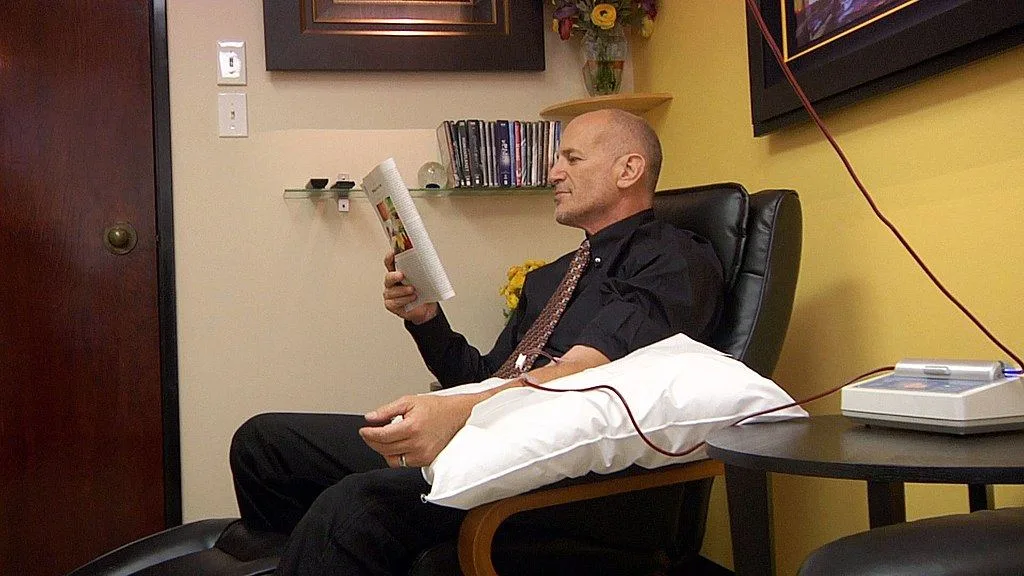Toxins aren’t good for the body. However, researchers have been looking at the possibility of them being beneficial for our health. Ozone is the core of this research, with the widespread belief that it can be used to treat diseases and wounds, through a process called Ozone Therapy. Due to the limited amount of evidence, the Food and Drug Administration (FDA) has stated that ozone is toxic and has no proven medical applications. However, some research has found that it may be effective in treating various medical conditions.
What Is Ozone?
Ozone is an odorless, colorless gas that is made up of three oxygen molecules bonded together. It is both a naturally-occurring and man-made product that occurs in the Earth’s upper and lower atmospheres. Ozone forms when heat and sunlight cause chemical reactions between the oxides of Nitrogen (NOx) and Volatile Organic Compounds (VOC). These raw ingredients are produced when fossil fuels such as gasoline or coal are burned, or when solvents evaporate.
On the one hand, many people speculate that exposure to this gas can cause a range of unpleasant side effects. On the other, people have started opting for ozone therapy as a way of improving oxygen content in one’s body, thus yielding a variety of health benefits.
How Does Ozone Therapy Work?
Pulmonologist Vickram Tejwani, M.D., says that higher oxygen levels in the body can boost your immune system while promoting healing – doing this through cell regeneration – and the process of replacing or repairing damaged cells. Indicated to be effective in disrupting the natural replication process of harmful invaders, some research has shown that it can inactivate bacteria, fungi, and viruses. This is typically used to treat several diseases, namely:
- Fibromyalgia: Affecting about 4 million adults in the United States, including Lady Gaga, this long-term chronic disorder is characterized by widespread musculoskeletal pain, which is accompanied by fatigue, sleep, and mood disorders. Ozone therapy is thought to be an ideal treatment, with one study showing that among the 65 patients with fibromyalgia, 70% of them reported significant improvement in their symptoms after undergoing ozone therapy.
- Diabetes: Complications that arise from diabetes tend to be caused by oxidative stress in the body. Research has shown that ozone may play a role in correcting oxidative stress by activating the body’s antioxidant and immune systems, while also reducing inflammation in the process. It has also been shown that ozone therapy can reduce hyperglycemia in patients with type 2 diabetes, returning glucose levels and organic peroxide to their original state.
- Cancer: Ozone therapy is believed to not only activate the immune system, but also support the production of cancer-fighting cells. These two combined benefits may help contribute to the general resistance of the body, aiding cancer treatment in the process.
How Safe Is It?
In 2018, researchers observed that when mixed with bodily fluids, ozone leads to the formation of additional proteins and blood cells, which leads to improved oxygen availability throughout the body. Now, this may seem quite promising, but one important fact to remember is that ozone gas is toxic to humans, with little research being conducted into the safety of the treatment.
In order to use this gas for medicinal purposes, it is either applied on the skin, blown into the body in its gas form, or by using an ozone sauna, where a body part, or even the entire body except for the face, is bagged and exposed to ozone gas. Since it irritates the airways, it is important to ensure that this gas is never inhaled. Exposure to ozone is associated with “a significant increase in the risk of death from respiratory diseases,” amongst other health risks.
Health Risks
Side effects associated with ozone therapy vary based on the type of treatment that the said person is undergoing. However, the most common ones include:
- Herxheimer Reaction: This causes an individual to experience flu-like symptoms
- Increased susceptibility to pulmonary infections
- Burning Eyes
- Nausea
- Headaches
- Lightheadedness

The United States Environmental Protection Agency has categorized Ozone as an air pollutant. Through numerous studies conducted, the EPA was able to show that ozone can be harmful, even at much lower levels. They have concluded that it can be deadly in the following ways:
- Respiratory Harm: From worsening asthma to worsening chronic obstructive pulmonary disease, ozone leads to increased airway inflammation
- Cardiovascular Harm: Increased risk of heart attacks, congestive heart failure, and strokes
- Causing premature death
- Harming the central nervous system
Who Should Not Opt For Ozone Therapy
Healthcare practitioners advise that there are certain groups of people that should completely stay away from receiving Ozone therapy, namely:
- Those with Thrombosis: Also known as blood clots, Thrombosis should not be combined with Ozone therapy. Ozone thins out your blood and could lead to the dislodging of a clot. This makes it move to the brain or heart, causing a stroke or heart attack.
- Those with existing respiratory conditions: Breathing in even the slightest bit of ozone can not only irritate the lungs, but also damage the lung tissue itself.
Bottom Line: Ozone Therapy Isn’t Safe
There is much speculation that ozone therapy is extremely beneficial to our health. However, that’s all it is; speculation. Dr. Tejwani says that there “just isn’t enough evidence to confirm that ozone therapy is safe.”
Researchers have yet to test Ozone Therapy in large-scale clinical trials and on humans. Until this happens, it will continue to be an unregulated, alternative form of therapy.
Official organizations do not currently support the use of this treatment to treat health conditions. If you decide to embark on this journey, be sure to consult your doctor. This will help you know if you’re at a higher risk of experiencing severe side effects, and if you should completely stay away from it.
MAIN IMAGE CREDIT: James Mutter, CC BY-SA 4.0, via Wikimedia Commons
References
Nuvolone, D., Petri, D. and Voller, F., 2018. The effects of ozone on human health. Environmental Science and Pollution Research, 25, pp.8074-8088.
Scassellati, C., Ciani, M., Galoforo, A.C., Zanardini, R., Bonvicini, C. and Geroldi, C., 2020. Molecular mechanisms in cognitive frailty: potential therapeutic targets for oxygen-ozone treatment. Mechanisms of ageing and development, 186, p.111210.





![women [longevity live]](https://longevitylive.com/wp-content/uploads/2020/01/photo-of-women-walking-down-the-street-1116984-100x100.jpg)









